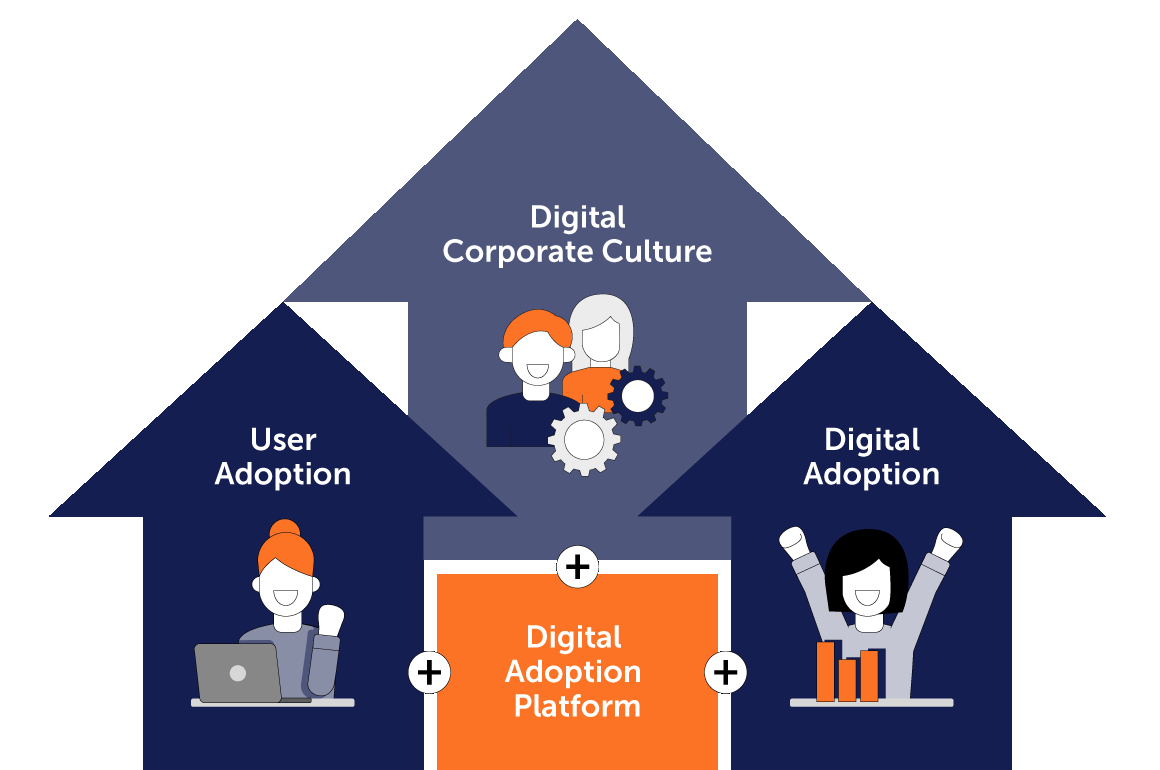What is digital adoption?

New technologies, software and business models have become commonplace. For years now, organizations from virtually every industry have been experiencing radical changes in their core business operations. While some of them are struggling with the digital transformation, however, others are coping perfectly well. Chief among them are organizations known as digitalization champions, who put as much trust in business analytics as they do in the feedback from their customers, and are able to make the correct decisions faster as a result.
These organizations are thriving because they have something that their less successful competitors do not – a mindset dominated by curiosity, open-mindedness and the ability to spark enthusiasm rather than insecurity and fear. Basically, the industry leaders aren’t more successful because they have better software. They are more successful because they actively live out digital adoption and make better use of the same software.
Digital adoption is more than digital acceptance
Definition of digital adoption
Although he could never have guessed what the 21st century would bring, writer Antoine de Saint-Exupéry years ago penned an idea that accurately describes what digital adoption is all about: “If you want to build a ship, don’t drum up the men to gather wood, divide the work and give orders. Instead, teach them to yearn for the vast and endless sea.”
Digital adoption pursues exactly the same goal – a positive attitude to technological innovations and changes in workflows. This is achieved by shifting perspectives away from the problems major changes may bring with them, and onto the actual ultimate goal of the change and the associated benefits. In other words, digital adoption is more than just accepting digital technologies.
Digital adoption is a change process
The term “digital adoption” encompasses a comprehensive change process that empowers staff to
- Recognize the potential of new technologies,
- Master and make full use of new processes, technologies and software,
- Understand the reasons for and the advantages of process optimizations,
- Perceive new tools and methods such as agile teamwork not as a hindrance, but as a necessary step for innovation and improving customer satisfaction.
Digital adoption carries the digital transformation
Ultimately, digital adoption determines how successfully an organization operates in a digital environment. The greater the level of digital adoption among staff, the greater their intrinsic motivation to keep the digital transformation moving forward and understand their actions as a contribution to the organization’s competitiveness. Organizations can only reach their goals if every member of staff is highly motivated to help shape the transformation.






